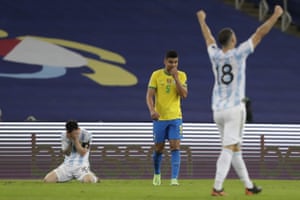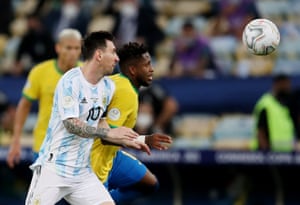You can also listen to the audio file by clicking on the Play Button
One of the most popular undergarment companies in the world, Victoria’s Secret, will abandon one of its most popular promotional strategies. After receiving public criticism for several years, the company finally decided to completely reinvent its brand image.
With this new change, instead of working with some of the world's most
popular models, the company will now work with other inspirational women, such
as entrepreneurs and activists. This change is intended to signal the brand’s
refreshed and reinvented public image.
Previously, some of the world's most famous models were both the face
and the voice of the lingerie brand. That strategy was first implemented in the
1990s and was used for about three decades
According to the brand’s CEO, this change is being introduced because
models are no longer viewed as culturally relevant, with many members of the
public criticizing the brand’s image as being outdated. In the first two
decades of this promotional strategy, as well as with the runway shows, the
company functioned as one of the biggest global voices regarding what was
deemed attractive.
The marketing chief of Victoria’s Secret parent company L Brands, Ed
Razek, was considered to be one of the most influential people in the modeling
industry of the 2000s. He worked in that position for several decades and
helped jumpstart the careers of a number of famous models before finally
stepping down from the role in 2019.
Although this reinvention was recently announced it remains to be seen
how receptive the public is going to be to these new promotional strategies.
The response to the announcement has been relatively positive from a number of
people, which shows the brand is still able to potentially remain relevant and
not be seen as outdated during this time.
For companies looking to implement a similar reinvention strategy, it’s
best to do so carefully and to prepare thoroughly before the launch.
From O'Dwyer (edited)
The scene sounded like something out of a zombie movie: an empty parking lot, angry wanderers desperate for a lifeline.
“It’s the
hunger games out here with people fighting for cars because you have none…in
the Atlanta airport? NONE?” wrote award-winning actor and singer Audra McDonald
in a tweet last week. “And when one comes up
people are all running for it? This is ridiculous.”
The missive
was directed at Hertz, which emerged from bankruptcy on June 30. But few
rental car companies have come out unharmed in this year of car shortages and
price hikes.
After selling off huge portions of their fleet during the pandemic, operators have had difficulty building their inventory back up to meet the demand of a rising tide of travelers. Last month, the travel booking site Hopper said prices were up 95 percent compared to the beginning of the year. A shortage of semiconductors is holding up car production, making the situation even more dire.
“We’re in a
situation where everything is expensive everywhere,” said Jonathan Weinberg,
founder and chief executive of the discount car rental site AutoSlash.
Representatives for Hertz and Enterprise did not respond to a request for comment, and Avis Budget Group declined to answer questions.
Stories of
painfully long waits, nonexistent cars and astronomical prices are common on
social media. Some frustrated customers have taken to invoking a scene from the sitcom “Seinfeld,” in which
comedian Jerry Seinfeld reacts to a car rental company running out of cars:
“You know how to take the reservation, you just don’t know how
to hold the reservation.”
The low-inventory, high-price trend started emerging earlier this year in leisure areas including Florida, Arizona and Las Vegas, and then spread to Hawaii, Alaska and national parks and to the rest of the country as travel continues to pick up.
Weinberg, AutoSlash CEO, said
his company is seeing prices typically between $100 to $150 a day for an
economy car.
Neil Abrams,
president of the auto-rental-focused Abrams Consulting Group, believes the
landscape will stay the same into next year.
“When will
this situation normalize?” he said. “I think when computer chips begin to flow
freely again and auto manufacturing increases to pre-pandemic levels, we will
see a more normalized market and more stable pricing.”
But Abrams
cautioned that even if rentals get more affordable, 2019 prices might be a
thing of the past.
Companies
“may learn that higher prices with fewer cars are better than lower prices with
more cars,” he said.
Dubai, home of the tallest skyscraper, now
hosts the world's deepest swimming pool, too,
with a depth of 60 meters and a water volume of 14 million liters of water,
equivalent to six Olympic-size swimming
pools.
Deep Dive opened its doors to
invited guests in late June, and includes a massive underwater city of
abandoned homes and an arcade.
Below its surface lies an entire underwater
world. Designed to resemble a sunken city, explorers can suit up in diving gear
to play underwater pool, foosball or chess, or they can just explore the depths
of the expansive, multi-themed facility. According to facility owners, it takes
several dives to see everything.
Dubai's newest attraction is at
least four times larger than any other pool in the world and superseded
Poland's Deepspot, measuring 45m in depth, for the Guinness World Record on
June 27.
It is housed in an oyster shaped
structure and surrounded by water features. The pool inside has a water
temperature of 30 degrees and guests are advised to wear a thin wetsuit or swimsuit.
The complex also doubles as an
underwater film studio with state-of-the-art lighting and sound systems, and an
editing room nearby.
The site has 56 cameras dotted
around the underwater city and an advanced hyperbaric chamber for emergencies, which
will be launched by the end of the year.
Dubai's newest attraction is
billed as a family friendly day out with diving courses for beginners and
advanced divers, but there are also tours on offer.
And those who do not feel like
diving can watch from an 80-seat restaurant equipped with large windows and TV
screens.
High profile guests including
actor Will Smith have already visited the pool. Smith described the
experience as 'madness' and he said he was told to check out the pool by a friend
because it has 'something weird about it'.
Deep Dive warns that guests should
not visit the Burj Khalifa - the world's tallest building, also located in
Dubai - after their visit.
“Don't visit the top of the
skyscraper after diving,” it says. “After any
dive, you should wait 18-24 hours before ascending higher than 300 meters.
However, there is no risk in diving after having visited the tallest building
in the world.'
And, perhaps the best part of Deep Dive — no sharks.
Two long droughts ended on
Saturday at the Copa América final. Argentina won their first major title since
1993 with a 1-0 win against Brazil in Rio de Janeiro and Lionel
Messi finally lifted his first major trophy for the national team,
filling in one of the biggest gaps in his decorated career.
“I needed to remove from
myself the thorn of achieving something with the national team,” said the Argentina captain after raucous
celebrations.
His side’s winning goal at
the Maracanã came in the 22nd minute after Rodrigo De Paul made a long pass to
Ángel Di Maria, who took advantage of some sloppy defending from the left-back
Renan Lodi to control the ball and loft it over Ederson.
When the match ended, a tearful Messi was thrown into the air by his joyous teammates. Once criticized by Argentina fans for his quietness, he went to the few hundred guests chanting his name at the Maracanã. Messi kissed the trophy before lifting it into the air to celebrate his country’s 15th Copa América, a title that drew Argentina level with Uruguay’s all-time record.
“The happiness is immense,” said Messi. “Many
times I dreamed of this. I had a lot of confidence in this group that became
very strong since the last Copa América. It is a group of very good people, who
always push forward, who never complain about anything.”
In an Instagram post
showing him in the dressing-room with the trophy, he wrote: “What a beautiful
madness! This is unbelievable! Thank you, God! We are the champions!”
Emiliano Martínez, the
Aston Villa goalkeeper who has been one of Argentina’s key players in the
tournament, said Messi “is the one who most deserved” to win the South American
title.
Messi spent some time after
the final whistle consoling his former teammate Neymar, who is still yet to win
a trophy with the Brazil national team.
Lionel Scaloni made five
changes from the Argentina side that beat Colombia on penalties in their
semi-final. Gonzalo Montiel, Cristian Romero,
Marcos Acuña, Leandro Paredes and Di María took the places of Nahuel Molina,
Nicolás Tagliafico, Guido Rodríguez and Nicolás González. Brazil, a team recognised
for their steadiness, did not make any changes from the team that had got to
the final.
Both teams started the game
cautiously, with chances few and far between. Neymar tried hard with dribbles
and passes but Brazil did little to work the Martínez in the first half. Argentina sat back, hoping for counterattacks.
Brazil’s coach, Tite, tried
to change the dynamic of the match by replacing thedefensive midfielder Fred
with Roberto Firmino at half-time, but though his side enjoyed more possession
they struggled to create opportunities.
Messi’s performance was not
as impressive as in previous matches of the tournament, during which he scored
four goals and had five assists. When he did find himself with a clear
opportunity, in the 88th minute, he tried to dribble round Ederson only to be
stopped by the Brazil goalkeeper.
Nonetheless, the eventual
win will surely provide Messi with huge relief given the questions he has faced
throughout his career about his effectiveness for the national team, whose last
major title came when he was six years old. Playing for Argentina, Messi has lost
three Copa América finals – to Brazil, 3-0 in 2007, and to Chile in 2015 and
2016, both on penalties – as well as the 2014 World Cup final to Germany in
Rio.
After leading his side to
victory in the same stadium as that defeat, Messi said his happiness was “unexplainable”.
He added: “I was sad before, but I knew that at some point it was going to
happen. I feel that God was saving this moment for me, against Brazil in a
final and in their country.”
What happenED during the match?
There’s the whistle and Argentina’s 28-year title drought is over! The Albiceleste wins 1-0 over Brazil to capture their 15th Copa América title, moving level with Uruguay for the most ever!
Messi is on his knees and his Argentina team-mates surround him by the touchline as a chorus of boos cascade down from the Maracanã stands!
On the other side of the pitch, Brazil players console tearful Neymar.

Updated
90 min+3: Firmino is called for a hand ball about 35 yards from Brazil’s goal. Emiliano Martinez takes his good old time setting up the restart. Moments later Ederson makes a fully extended save to deny Argentina.
89 min: Two more crossed are cleared for Brazil. Then Messi is clear on goal ... but he stumbles to the ground in a heap.
87 min: Vinicius Junior wins a free kick for Brazil from a dangerous area toward the side of the area. Neymar whips it in and it’s blocked away. Emiliano Martínez saves Gabigol’s second-chance attempt!
84 min: Brazil wins a corner after Barbosa close-range chance off a through ball finds the outside netting, but Danilo sends Neymar’s service well over the crossbar.
81 min: Otamendi is shown yellow after vicious tackle of Neymar in the midfield. The players on both sides come together but the flare-up is extinguished and play resumes. High tempers and higher drama in the final reel.
79 min: Argentina counters with three substitutions: Germán Pezzella for Cristian Romero, Exequiel Palacios for the goalscorer Ángel Di María; and Nicolás González for Lautaro Martínez.
77 min: Brazil gets its substitutions into the match as Emerson comes on for Renan Lodi while Gabriel Barbosa takes Pacqueta’s place.
75 min: Di Maria takes on his defender 1v1 and sails a cross into the box, but a defender heads it clear. The tension continues to build as the seconds tick away.
72 min: Lucas Paqueta is into the book with a yellow for a late tackle. Changes forthcoming for Brazil, who approach desperation time.
71 min: Lucas Paqueta runs onto a through ball but he’s well-defended and pulls a shot wide for an Argentina goal kick.
69 min: Brazil win a free kick but nothing comes from it. Moments later, De Paul is shown yellow after he brings down a hard-charging Neymar. The drama builds at the Maracanã.
66 min: Lionel Messi is still on zero goals in his fifth final and tenth major tournament.
63 min: Two substitutions in the 63rd minute. Argentina’s Nicolás Tagliafico is on for Giovani Lo Celso. For Brazil, Vinicius Junior enters in place of Everton.
56 min: A dangerous chance for Brazil as Neymar has a go from the middle of the area while Argentina players surround him. He goes down in a heap ... and the decision from the referee is an offside ruling to the dismay of the hosts.
54 min: A fast and furious sequence over the past few minutes! Brazil appears to equalize through Richarlison, but the goal is correctly disallowed by VAR. Argentina makes a substitution and inserts Guido Rodriguez for Paredes. Then Richarlison nearly scores again, this time from an onside position, but Emiliano Martinez pushes the shot aside.
50 min: Messi darts into the area and slides it to Di Maria, whose shot is blocked. Brazil is on the counter in the blink of an eye, but Neymar is brought down by Lo Celso, who gets a yellow for his efforts.
46 min: And we’re under way in the second half. One change to note: Roberto Firmino, who was taken off for Lucas Paqueta at half-time of Brazil’s quarter-final win over Chile, is on for Fred, who picked up a yellow card way back in the third minute. He is slotted into the Brazil middle three playing further up in more of an attacking position.
Well, well, well. Argentina is halfway home to ending their 28-year trophy hoodoo after Ángel Di María’s gorgeous 22nd-minute goal. That it came despite a quiet half from Lionel Messi only unnerves Brazil fans more.

45 min: The fourth official Diego Haro from Peru signals for one minute of stoppage time.
43 min: Brazil wins its first corner of the night but it’s cleared from danger. What a stout performance from the Argentina trio of De Paul, Paredes and Lo Celso, who thoroughly boss Brazil’s midfield from the jump and deny them time and space to operate.
37 min: Di Maria is down with an ankle injury near the goal line. The referee briefly stops play, but the match resumes shortly after and Argentina continues with 10 men as the medical staff evaluates the goalscorer’s fitness.
34 min: Brazil are right back into the attack only moments after Messi’s misses shot and Neymar wins a free kick about 30 yards from the goal. Neymar’s attempt goes directly into the wall, however.
32 min: Argentina misplays a ball out of the back but Brazil can’t capitalize and they surrender possession almost immediately. A quick counter-attack follows and Messi fires in an off-balance shot from just outside the area that skids wide of the goal.
29 min: Di Maria runs directly at Fred (who’s on a yellow) down the right flank. The PSG midfielder has a go from distance and it’s blocked, only to pinball before a Brazil defender can clear it.
26 min: Argentina’s keeper Emiliano Martinez is forced to make his first save of the night when Casemiro shoots, but it is hardly dangerous.
22 min: And Argentina is ahead! A long direct pass from Rodrigo De Paul is badly misplayed by Renan Lodi and lands on the foot of 33-year-old Angel Di Maria, who lifts it up over a helpless Ederson and into the back of the goal. What a start for the Albiceleste!

20 min: Brazil generates a couple of half-chances in the past three minutes, both times bypassing the midfield in search of a quick strike. Then Neymar is brought down right outside the area for what appears to be a free kick for Brazil from about 22 yards, but Argentina is bailed out by an offside call.
16 min: Neymar is cut down by Paredes while in attack. A tactical foul but yet another sign of the rugged physicality on display up and down the pitch. There are only 8,000 spectators but it sounds like a whole lot more.

14 min: Otamendi catches Lucas Paqueta during a Brazil attack down the center of the pitch, giving the hosts a free kick from a dangerous position. It’s poorly taken, then Argentina wins a free kick from the shadow of their own goal after an Oscar-worthy performance from Montiel. The Conmebol energy is strong with this one already.
11 min: Lots of two-way energy but neither team really manages to get their teeth into the match so far. Almost out of nowhere, Neymar springs up the left side but the attack is broken up and a foul gives Argentina a free kick going the other way.
6 min: It’s all Argentina in the early going, but neither side generates a serious chance with most of the action taking place in the middle third.
3 min: Brazil’s Fred comes in early on a challenge along the sideline and catches Monteil. This draws an early yellow card from the referee.
1 min: After a minute of silence for the victims of the Covid-19 pandemic, the Uruguayan referee Esteban Ostojich gives the signal and we’re off and running from the Maracanã! Argentina attacks from left to right in their familiar white kits with blue stripes, Brazil from right to left in yellow shirts with blue shorts.
The teams emerge from the tunnel and take their positions on either side of the trophy for the national anthems. The scenes play out beneath a spectaular pyrotechnic display above the ground. First it’s Brazil’s Hino Nacional Brasileiro, followed by Argentina’s Himno Nacional Argentino. We should be under way in a few short minutes!
From The Guardian